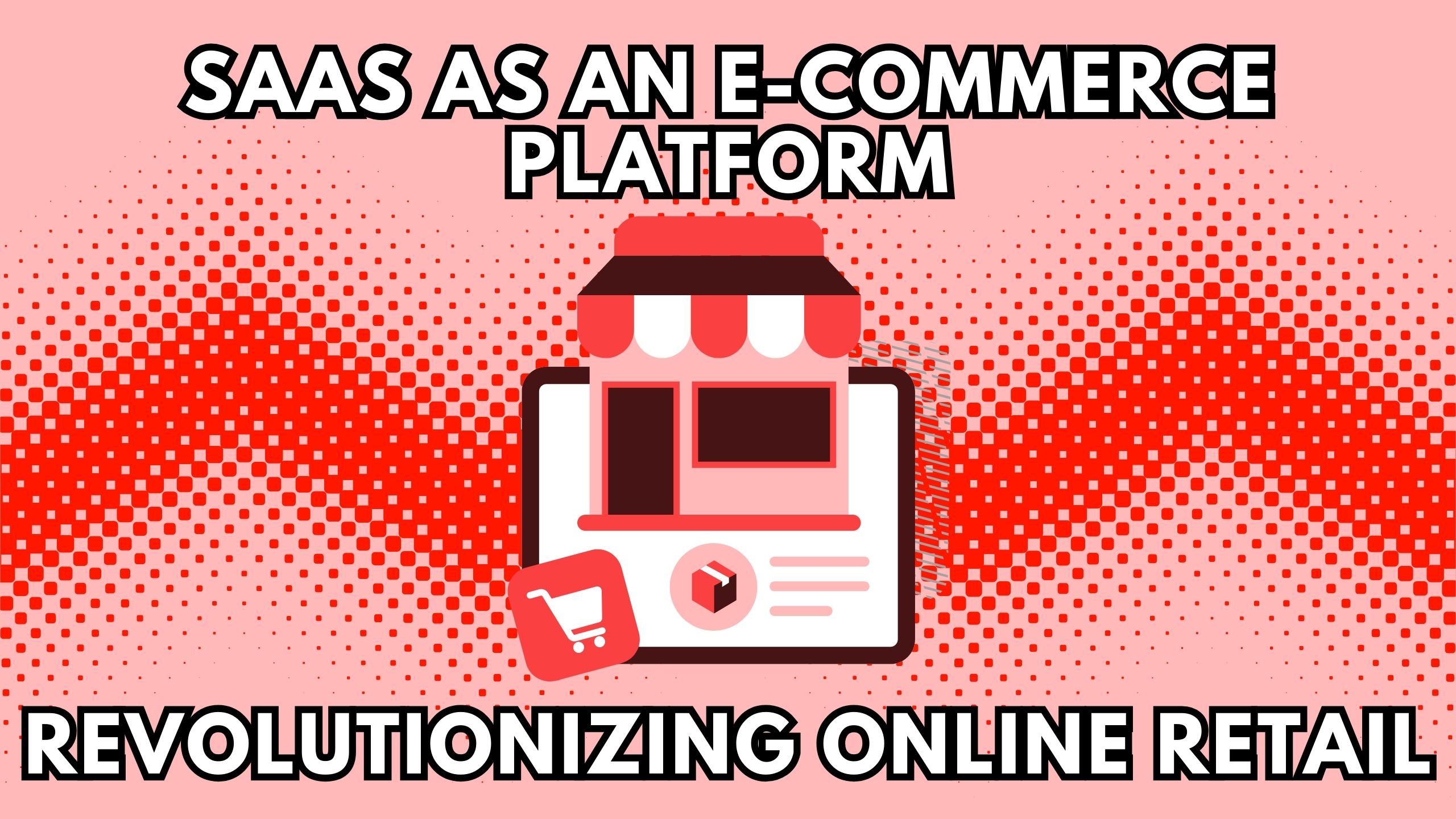SaaS as an E-commerce Platform: Revolutionizing Online Retail


SaaS as an E-commerce Platform: Revolutionizing Online Retail
In the ever-evolving landscape of e-commerce, Software as a Service (SaaS) has emerged as a game-changer, offering businesses a scalable and efficient platform to establish and grow their online presence. This comprehensive exploration delves into the intersection of SaaS and e-commerce, unraveling the benefits and intricacies that make SaaS a compelling choice for businesses venturing into the digital marketplace.
Unveiling the Potential: SaaS as the Foundation for E-commerce Success
1. Scalability and Flexibility
SaaS platforms provide unparalleled scalability and flexibility for e-commerce businesses. Whether you’re a budding entrepreneur or an established enterprise, the ability to scale your operations seamlessly is paramount. SaaS e-commerce solutions offer a dynamic infrastructure that grows with your business, ensuring that you can adapt to changing demands without the constraints of traditional setups.
2. Cost-Efficiency and Accessibility
Traditional e-commerce platforms often require significant upfront investments in hardware, software, and maintenance. SaaS, on the other hand, operates on a subscription-based model, eliminating the need for substantial initial capital. Cost-effective cloud solutions democratize e-commerce, enabling businesses of all sizes to leverage advanced technology without a prohibitive financial burden.
3. Rapid Deployment and Time-to-Market
Launching an e-commerce store swiftly is crucial in the fast-paced digital landscape. SaaS e-commerce platforms streamline the development and deployment process, significantly reducing time-to-market. With pre-built templates, intuitive interfaces, and seamless integrations, businesses can establish their online presence promptly, capitalizing on emerging trends and consumer demands.
4. Continuous Updates and Innovation
SaaS e-commerce platforms prioritize innovation and stay at the forefront of technological advancements. Regular updates, feature enhancements, and security patches are seamlessly delivered to users without any disruption. This ensures that businesses using SaaS e-commerce solutions are equipped with the latest tools and capabilities to stay competitive and meet evolving customer expectations.
5. Integrated Ecosystem and Third-Party Apps
The interconnected nature of SaaS e-commerce platforms fosters an integrated ecosystem where various functions seamlessly communicate with each other. Additionally, the availability of a myriad of third-party apps enhances the functionality of e-commerce stores. From payment gateways to marketing automation tools, SaaS enables businesses to create a tailored and efficient e-commerce environment.
Relevant SaaS Products Empowering E-commerce Ventures
In the realm of SaaS, specific tools stand out for their exceptional contributions to e-commerce success. Here are five relevant SaaS products that play a pivotal role in enhancing the capabilities of e-commerce platforms:
- Shopify: Shopify is a powerhouse in the e-commerce space, providing a user-friendly platform for businesses of all sizes. With customizable templates, seamless integrations, and a robust ecosystem of apps, Shopify empowers e-commerce entrepreneurs to build and scale their online stores effortlessly.
- BigCommerce: BigCommerce is renowned for its comprehensive e-commerce solution, offering a range of features tailored for scalability. From flexible product cataloging to advanced SEO tools, BigCommerce enables businesses to create a compelling online presence with ease.
- Magento: Magento, an Adobe company, caters to enterprises seeking a robust and customizable e-commerce solution. Known for its flexibility and extensive feature set, Magento provides businesses with the tools needed to create unique and immersive online shopping experiences.
- WooCommerce: Built as a WordPress plugin, WooCommerce seamlessly integrates e-commerce functionality into WordPress websites. It offers a user-friendly interface, extensive customization options, and a vast community, making it an ideal choice for businesses leveraging the WordPress platform.
- Square: Square goes beyond traditional e-commerce platforms by providing a comprehensive solution that includes point-of-sale systems, online stores, and payment processing. With its integrated approach, Square simplifies the complexities of running a business, offering a unified platform for both online and offline sales.
Conclusion: Transforming E-commerce with SaaS
The marriage of SaaS and e-commerce marks a transformative moment in the digital retail landscape. The inherent advantages of SaaS, such as scalability, cost-efficiency, and rapid deployment, align seamlessly with the dynamic requirements of e-commerce businesses. As online retail continues to evolve, embracing SaaS as an e-commerce platform becomes not just a choice but a strategic imperative for businesses aiming to thrive in the digital era.
Unlock Your E-commerce Potential with Subscribed.fyi: Navigating the SaaS Landscape
Elevate your e-commerce journey with Subscribed.fyi, the ultimate platform for freelancers and teams seeking to understand, compare, and manage their SaaS stack. Sign up today to unlock exclusive deals, streamline subscription management, and gain invaluable insights that propel your e-commerce strategy to new heights.
Relevant Links:








